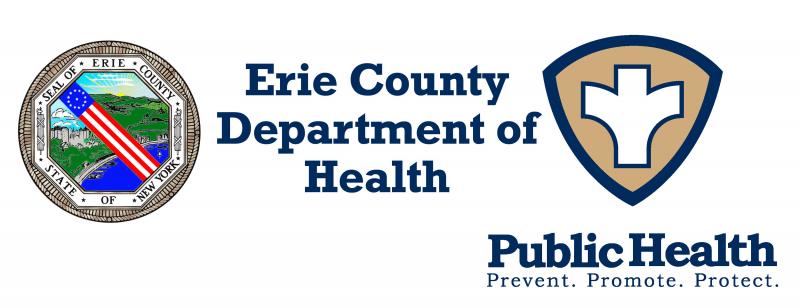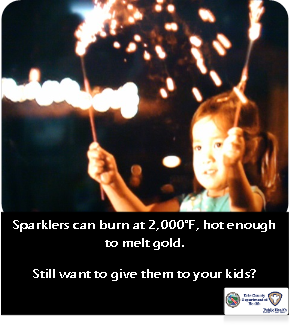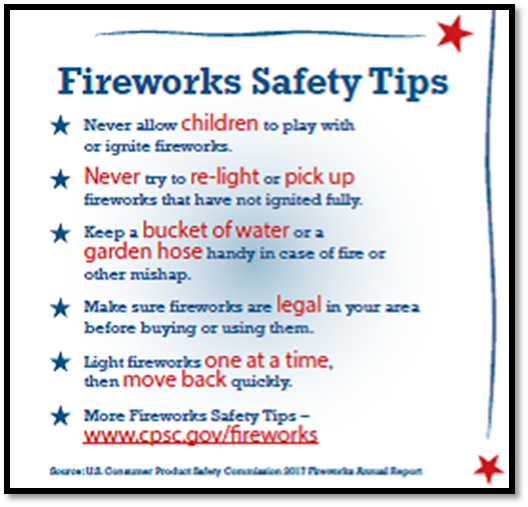Modified: June 29, 2018 9:19am
Latest News

PRESS RELEASE
From the Office of the Commissioner of Health, Dr. Gale R. Burstein
Date June 29, 2018
CONTACT: Mary C. St. Mary/Mary.StMary@Erie.Gov
Phone: 716.858.4941/ Mobile: 716.253.3925
Tips for a Safe & Healthy 4th of July
Leave Fireworks to the Professionals
ERIE COUNTY, NY—The Erie County Department of Health (“ECDOH”) urges residents celebrating Independence Day to exercise good judgment and to be mindful of potential dangers from accidents with fireworks.
"Whether you are grilling, camping, spending the day in or near the water, or just relaxing with family and friends, a few simple safety tips can keep the celebration fun and prevent urgent care or emergency department (ED) visits," said Dr. Gale Burstein, Erie County Commissioner of Health.
Over 11,100 people went to the ED with injuries from fireworks in 2016, according to the most recently available Consumer Product Safety Commission data. Children younger than 15 years of age accounted for 31% of the estimated 2016 injuries; 69% of ED-treated injuries were burns.

“We strongly encourage people to leave fireworks to the professionals, added Burstein. “The use of most personal fireworks is illegal in New York State. Children should never play with fireworks or sparklers. Private fireworks use is responsible for eye and ear damage, burns, puncture wounds, and permanent scarring each year.”

For those celebrating outside, monitor your fluid intake, especially in warm weather. Heat-related illnesses risk increase with exertion. Limit dehydration by drinking plenty of water. Young children and senior citizens require special precautions as they are especially vulnerable to heat-related illness. Be aware that alcohol accelerates the effects of heat-related illness. While participating in outdoor activities, frequently apply sunscreen, even when it is cloudy. Reapply sunscreen after swimming or sweating profusely.
Don't drink and drive! Excessive alcohol consumption can lead to avoidable accidents. Arrange for a designated driver in advance or use a ride-sharing service whenever possible.
Having a picnic? Outdoor food safety is always a concern during warm summer weather. An estimated 1 in 6 people in the U.S. develop a foodborne illness each year. One of the basics of food safety is cooking food to its proper temperature to kill harmful bacteria and viruses that cause foodborne illness. “You cannot tell when food is “done” simply by checking its color and texture,” said Burstein. “The only way to be sure food is cooked properly is to use a food thermometer to check cooking temperature to confirm that it reaches a safe minimum temperature.”
Whether you are a novice or an expert, be mindful when cooking on a grill of risks involved with open fires or gas lines. Keep children and recreational activities a safe distance away from the flames.
Keep cold food cold and hot food hot. Do not leave food out all day during holiday get-togethers! Illness-causing bacteria and viruses can grow in many foods within 2 hours unless refrigerated. During the summer heat, cut that time down to 1 hour. Once served, refrigerate any food that needs to be kept cold by placing it in a cooler or on ice to maintain a temperature of 40°F. Food poisoning can occur in as little as one hour when temperatures are over 90°F.
Heading to the pool, lake or other water activity? Always try to have a lifeguard or chaperone keeping an eye on children. Boaters should review safe boating laws and procedures. Make sure boaters have a current license and updated safety equipment and life jackets on board before heading out.
Hikers and campers should carry appropriate gear and use an effective insect repellent. When hiking in a remote location, be sure family or friends are aware of your departure time and approximate route.
Western New York summers offer many fun outdoor activity opportunities. Erie County residents just need to be sure to play it safe.
# # #
For More Information:
United States Consumer Product Safety Commission—Fireworks Information Center
Food & Drug Administration (FDA) Recommended Cooking Temperature Guide

